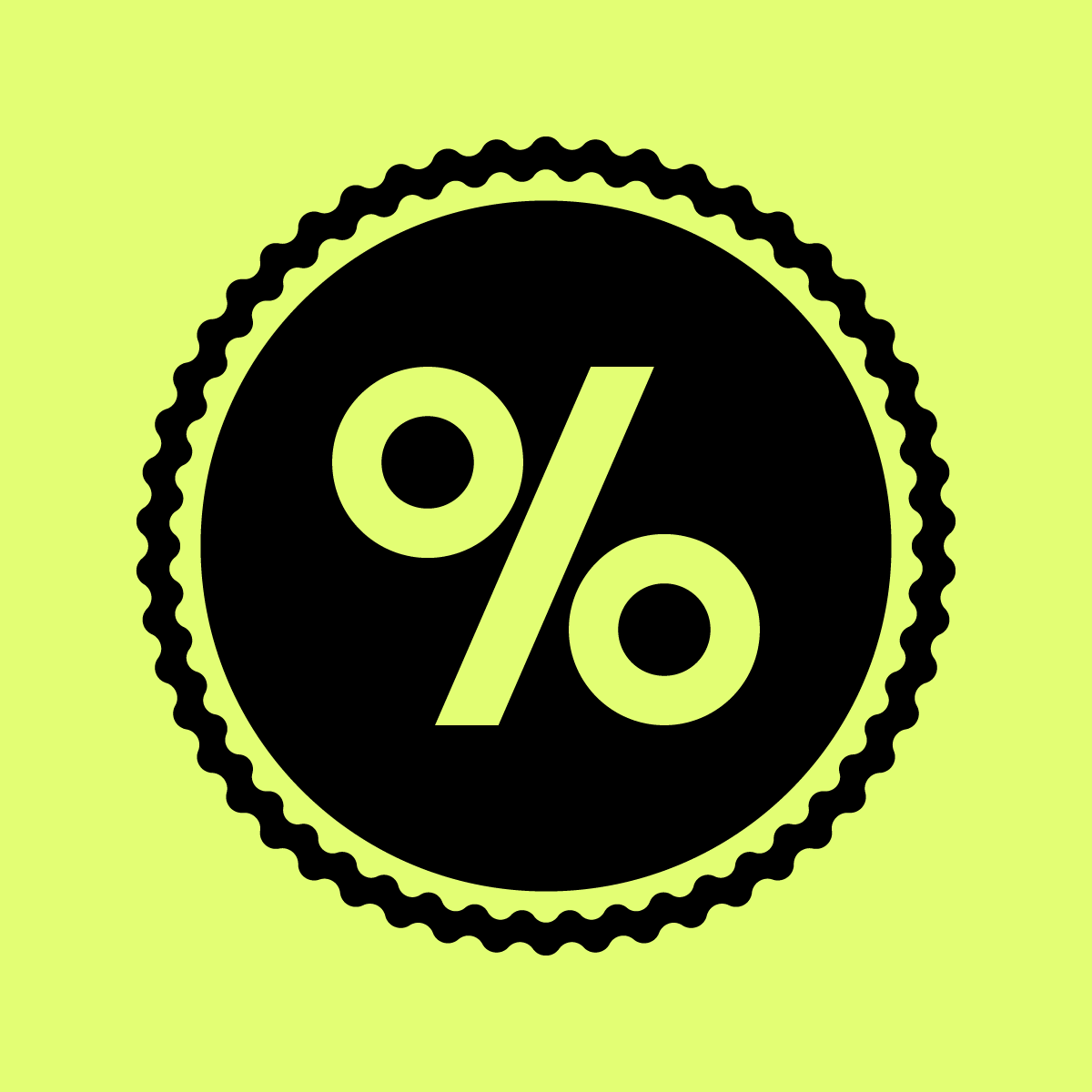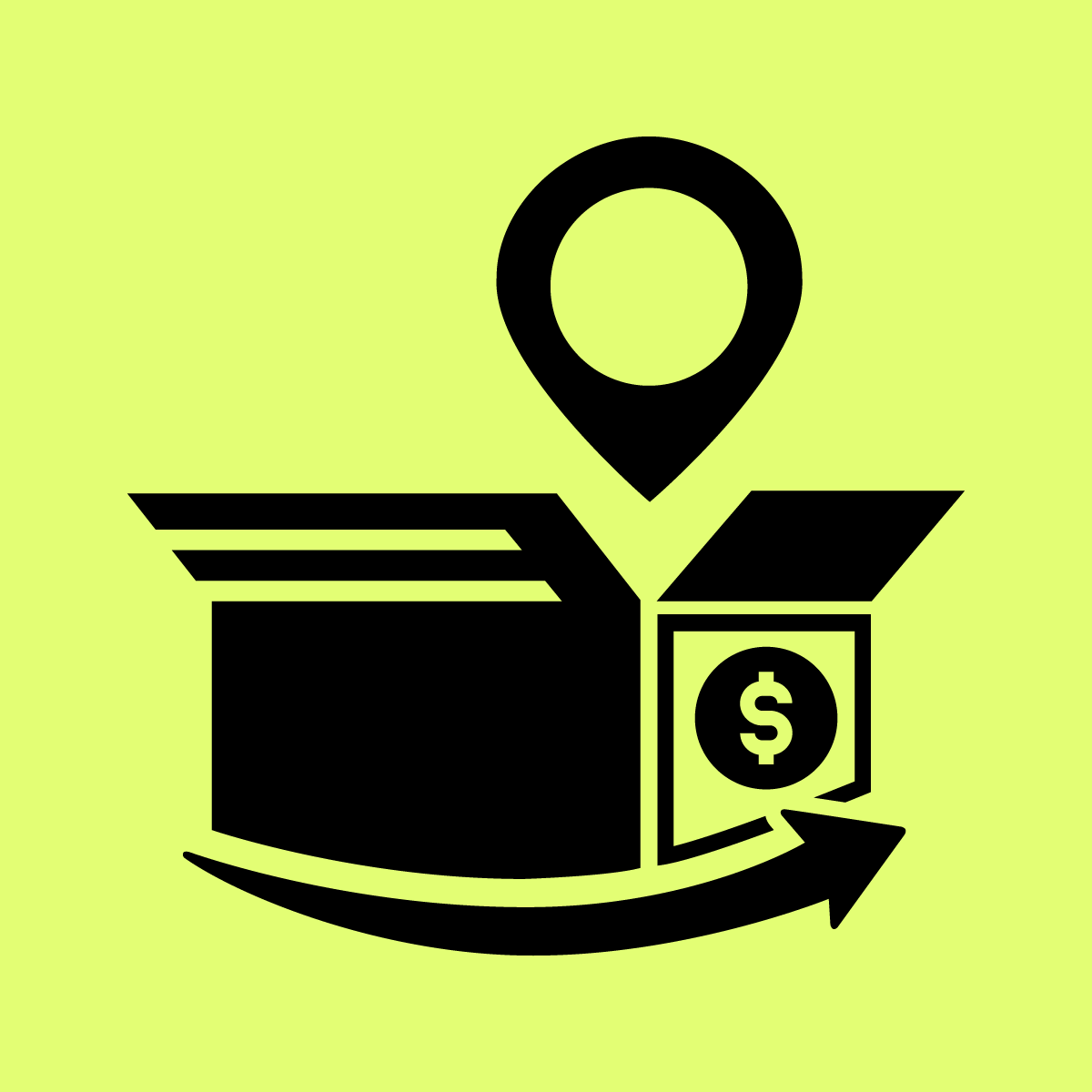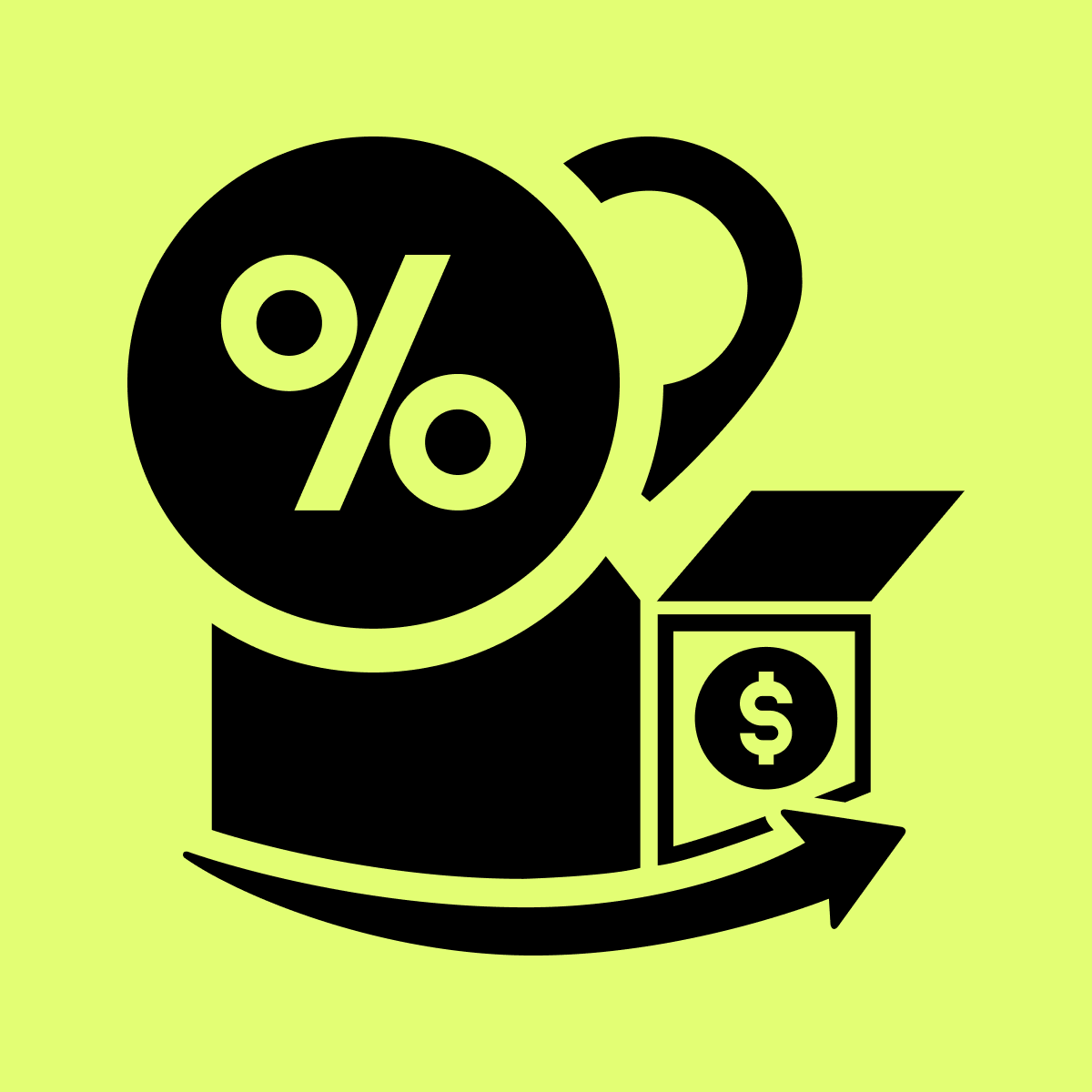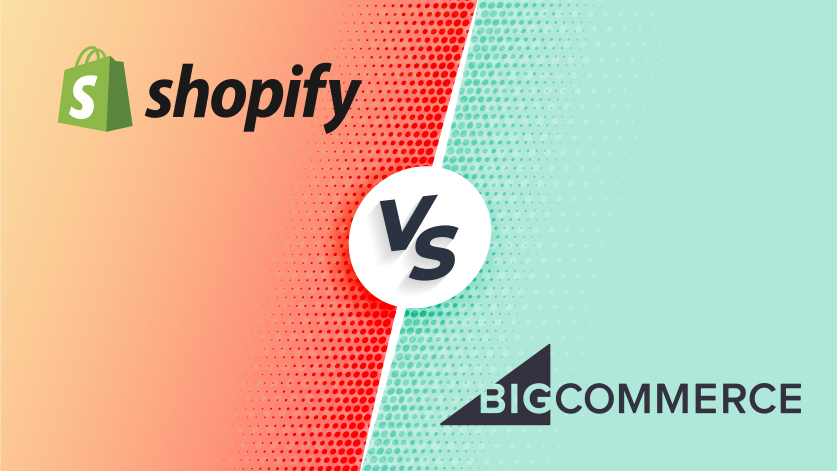Are you ready to launch your online store? If so, congratulations! One of the most important decisions you’ll need to make is choosing the right eCommerce platform. BigCommerce and Shopify are two of the most popular eCommerce platforms, each with its own unique strengths and weaknesses.
Choosing the right platform is important for the success of your online store, and this article aims to help you make an informed decision by comparing BigCommerce and Shopify across a range of factors.
The Basics: BigCommerce vs. Shopify?
Businesses can set up their online stores with BigCommerce or Shopify to reach customers all over the world. But it’s important to understand what each platform offers and how it can benefit your business before choosing one.
Here, we’ll compare BigCommerce and Shopify side-by-side so readers can decide which is best for them.
BigCommerce:
BigCommerce is an online shopping platform that began in 2009. It is a fully hosted platform, which means that BigCommerce takes care of everything about the online store.
This covers hosting, security, and software updates. BigCommerce has many features, such as a drag-and-drop website builder, SEO tools, payment processing, and shipping integrations.
It is also known for being good at managing inventory, which makes it a popular choice for bigger businesses.
BuiltWith says that by September 2023, more than 98,000 websites, most of them in the United States, were run by BigCommerce.
Since it began, BigCommerce has handled more than $25 billion in sales, and businesses that use the platform have seen their sales grow by 28% from one year to the next.
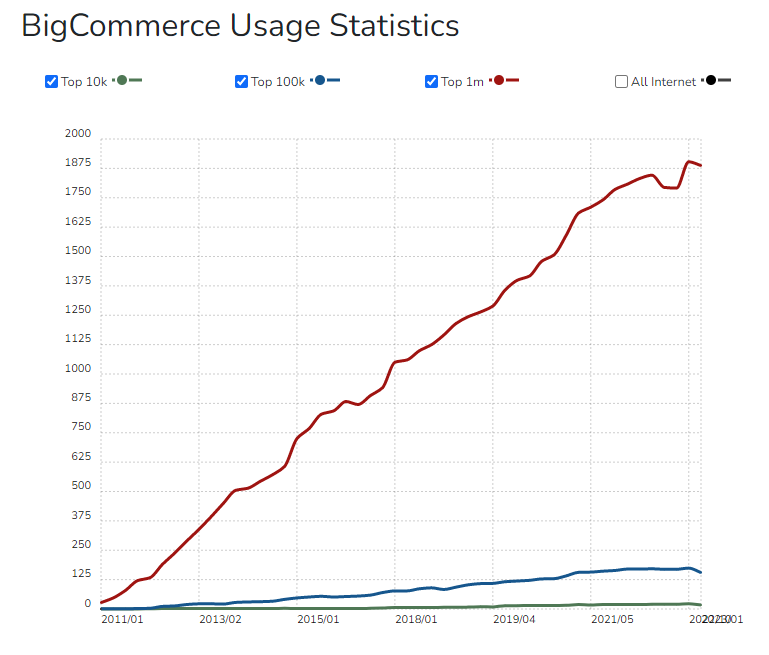
Shopify:
Another well-known eCommerce platform is Shopify, which has been around since 2006. It is a fully hosted platform with many features, such as website templates, payment processing, shipping integrations, and marketing tools.
One of the best things about Shopify is how easy it is to use. This makes it a popular choice for small businesses and people who are new to online shopping.
Shopify’s numbers show that since it started, the platform has handled more than $2.9 billion in sales, and businesses that use it grow by an average of 126% each year.
By September 2021, Shopify will be running more than 1.9 million websites. Businesses in more than 175 countries will sell goods through the platform.
Shopify vs. Bigcommerce Pricing:
BigCommerce and Shopify have different pricing plans and structures, so it’s critical to compare them thoroughly to find the best one for your business needs and budget.
BigCommerce has three price plans: Standard, Plus, and Pro. The Standard plan starts at $29.95 per month and includes an unlimited number of products, storage, bandwidth, and marketing tools.
The Plus plan starts at $79.95 per month and has extra features like getting Google customer reviews and getting carts that customers have left behind.
The Pro plan starts at $299.95 per month and has all of the features of the Plus plan plus more advanced features like custom SSL, faceted search, and product filtering.
On the other hand, Shopify has five different plans with different prices: Shopify Lite, Basic Shopify, Shopify, Advanced Shopify, and Shopify Plus.
The Shopify Lite plan starts at $9 a month and lets businesses sell on social media and accept credit card payments. The Basic Shopify plan starts at $29 per month and includes a website, blog, and an unlimited number of products, storage, and bandwidth.
The Shopify plan costs $79 a month and has extra features like gift cards and professional reports. The Advanced Shopify plan starts at $299 a month and has features like advanced report building and real-time carrier shipping.
The Shopify Plus plan is an enterprise-level plan with a custom price that gives businesses that sell a lot more tools and support.
Which Platform is Best for SEO: Bigcommerce vs Shopify SEO?
Choosing the right eCommerce platform when building an online store can make a big difference for SEO. Here are some thoughts and numbers to help you decide whether BigCommerce vs. Shopify is better for SEO.
- Page speed: A website that loads quickly is important for SEO. Shopify is better than BigCommerce when it comes to how quickly the page loads. A recent study found that a page on Shopify takes an average of 1.3 seconds to load, while a page on BigCommerce takes an average of 2.2 seconds to load.
- Responsive Website: Since more than half of all web traffic comes from mobile devices, making a website mobile-friendly is a very important part of SEO. Both Shopify and BigCommerce have themes that are responsive and work well on mobile. Shopify’s mobile app, on the other hand, lets store owners run their stores even when they’re not at home.
- Customization: Customization is one of the most important parts of SEO. BigCommerce is less flexible and can’t be changed as much as Shopify. Shopify’s drag-and-drop editor and large app store make it easy for people without technical skills to make changes to their stores.
- Built-in SEO: Both platforms have SEO features that can be changed, like page titles and meta descriptions. Shopify’s SEO features, on the other hand, are more advanced and offer a wider range of tools, such as automatic sitemap creation, schema markup, and canonical tags.
- Market share: Lastly, SEO can be affected by market share. Datanyze says that Shopify, with an ∼11% market share, is the most popular eCommerce platform, while BigCommerce has a 0.67% market share.
Both platforms have their pros and cons, but Shopify seems to be the better choice for SEO because it has a faster page speed, a mobile app, more customization options, more advanced SEO features, and a larger market share.
But it’s important to keep in mind that SEO success also depends on things like the quality of the content, the number of backlinks, and keyword research.
What Sales Features do BigCommerce vs. Shopify Offer?
Both BigCommerce vs. Shopify has a number of sales features that can help online stores make more money and reach more customers.
Here are some of the most important selling features of both platforms:
- Third-party apps: BigCommerce and Shopify both have app stores with thousands of third-party apps that can add new features to your store, like email marketing, social media integration, and product recommendations.
- Content management: Both platforms have strong content management systems that make it easy to create and manage product pages, blog posts, and other types of content.
- Multi-channel selling: BigCommerce and Shopify let you sell your products on multiple channels, like Amazon, Facebook, and Instagram, in addition to your website.
- Payment processing: Both platforms have built-in payment processing tools that make it easy to accept credit card payments and support other payment methods like PayPal and Apple Pay.
- Shipping and fulfillment: Both platforms can connect to popular shipping and fulfillment services and have tools for calculating shipping rates and printing shipping labels.
If you want to sell on Instagram with shoppable posts, here is a detailed guide on how to sell on Instagram with shoppable posts using Shopify.
Both platforms have similar sales features, but there are some differences.
For instance, BigCommerce has more built-in features than Shopify, but Shopify has a bigger app store with more third-party options.
In the end, the best platform for your business depends on your specific needs and preferences.
Which Platform is Better for Designing: BigCommerce vs. Shopify?
Both BigCommerce and Shopify have interfaces that are easy to use and make it simple to set up and run an eCommerce store. But when it comes to design, Shopify is a little bit better than BigCommerce.
Shopify has a wider selection of professionally designed templates, both free and paid, that are easy to change to fit the look and feel of your brand.
The templates are also set up to work well on mobile devices, so your store will look great on any device.
BigCommerce also has templates, but there aren’t as many to choose from as with Shopify.
Also, you may need more technical knowledge than with Shopify to change the templates.
Both platforms have good design options, but if it’s important to you to have more choices, Shopify may be the better choice.
Support and Security: Which is Better Shopify or BigCommerce?
Both BigCommerce vs. Shopify have reliable support and security features that make sure their users can get help, and their stores are safe.
Both platforms offer support 24/7 support through phone, live chat, email, community forums, and video tutorials.
But Shopify’s knowledge center stands out because it has helpful prompts all over the dashboard of its website that lead directly to relevant pages in the knowledge center.
This feature gives users more freedom to learn on their own, making it a great tool for people who want to learn on their own.
When you upgrade to the most expensive plan on either platform, you can get priority support. Shopify’s top plan, Shopify Plus, gives users a dedicated support team.
BigCommerce’s Enterprise plan, on the other hand, comes with an onboarding consultant and gives phone support requests a priority.
Both platforms are also PCI DSS compliant, which means they meet the requirements of the Payment Card Industry Data Security Standard to keep credit card data safe from being stolen.
Also, all plans on both platforms come with free SSL certificates, and users can upgrade to more secure SSL certificates if they want to.
Both platforms have good customer support and security features, but Shopify has a knowledge center and helpful prompts all over its dashboard that give it a slight edge in customer support.
| Support Type | Shopify | BigCommerce |
| Phone Support | Yes | Yes |
| 24/7 Support | Yes | Yes |
| Email Support | Yes | Yes |
| Chat Support | Yes | Yes |
| Community Support Rating | 5 | 4 |
Which Platform is Easy-to-Use?: Compare Shopify and BigCommerce
Most people think that Shopify is easier to use than BigCommerce when it comes to its usability. Shopify uses a simple and easy-to-use content management system (CMS).
It has a simple website editor and an up-to-date dashboard. Shopify makes it easy to add products.
There’s a short form to fill out for each item, and there are plenty of tips along the way.
On the other hand, BigCommerce has more powerful sales tools, but it takes a bit more time to learn. It has a more complex menu for product information, but categories and information can be useful for consumers.
But BigCommerce recently made it easier to use by adding a drag-and-drop builder that gives it more design freedom than Shopify.
Shopify is the best choice for people just starting out, while BigCommerce is more powerful but takes a long time to learn.
Which Platform Provides More Themes and Flexibility?: BigCommerce or Shopify
In terms of themes and flexibility, Shopify has a wider range of free and paid themes than BigCommerce.
BigCommerce has caught up with Shopify in terms of design quality, but Shopify still has a larger community of third-party developers who make themes for their platform.
Paid themes for Shopify tend to be more expensive, with an average price of around $200, but they offer a wider range of design options.
But BigCommerce has many free themes that are at least as good as Shopify’s free themes.
Both platforms, BigCommerce and Shopify have a good selection of themes, but Shopify has a slight edge in this area because it has a larger selection and third-party support.
Which Platform Provides More Customization: BigCommerce vs. Shopify?
Both BigCommerce and Shopify give store owners a good range of tools for customizing their stores. But Shopify lets you change things in a few more ways than BigCommerce.
Shopify’s theme editor is simple and easy to use, so you don’t need to know how to code to change the look and feel of your store. Their drag-and-drop interface lets you change fonts, colors, and layouts.
Also, Shopify’s app store has a large number of third-party apps that you can use to add extra features to your store, such as providing discounts to your customers, product reviews, email marketing, and social media integration.
BigCommerce, on the other hand, has more options for customization, but you need to know more about technology to use it.
Developers can use their Stencil framework to make their own themes and templates from scratch. You can also edit HTML, CSS, and JavaScript directly.
BigCommerce also gives developers access to their API, which lets them make custom integrations and add features to your store.
Overall, both BigCommerce and Shopify offer a good number of ways to customize your store.
However, Shopify’s drag-and-drop editor and larger Shopify app store make it easier for people who aren’t tech-savvy to change their stores.
But BigCommerce’s stencil framework and API give you more ways to customize if you know how to code or are willing to hire a BigCommerce development company.
Which Platform Provides a Streamlined Checkout Process?
Both BigCommerce and Shopify have simplified checkouts process that makes it easier to buy something. But user reviews show that Shopify is better at this.
Shopify’s checkout process is mobile-friendly, which is important given the rapid growth of mobile commerce. It can also be modified so that you can choose which fields to include on the checkout form.
This makes things easier and encourages more people to buy. Shopify also has a one-page checkout process, which eliminates the need for multiple clicks to complete a purchase.
BigCommerce also has a checkout process that is easy to use and works well on mobile devices. It has features like getting shipping quotes in real-time and automatically checking an address.
But some users have said that the checkout process can be slow and that the design is not as clean and easy to use as Shopify’s checkout process.
Pros and Cons of BigCommerce vs. Shopify
But which one should you choose? In this blog, we’ll look at the pros and cons of BigCommerce vs. Shopify to help you choose.
Pros of BigCommerce:
- Built-in features: BigCommerce has a wide range of built-in features, such as recovering carts that have been left behind, selling on multiple channels, and letting customers rate and review products. This can save you time and money because you won’t have to pay for extra apps or plugins to use these features.
- Scalability: BigCommerce is a platform that can be used by businesses of all sizes because it is very flexible. BigCommerce can meet your needs whether you are just starting out or have a big business.
- Analytics: BigCommerce offers in-depth analytics and reporting, so you can keep track of your sales, income, and how customers behave. This information can help you make better business decisions and improve how you market your business.
Cons of BigCommerce:
- Learning Curve: BigCommerce has a learning curve because it has a lot of features, but it can take some time to learn how to use them well. If you’re new to eCommerce or haven’t used the platform before, you might need to take some classes or hire a developer to help you get started.
- Fewer templates and themes: Big Commerce has fewer templates and themes than some other platforms. If you want a store design that you can change a lot, you may need to hire a developer or switch to a different platform.
- Transaction fees: BigCommerce’s plans don’t have transaction fees, but you have to use their preferred payment gateway. If you choose a different payment gateway, you may have to pay extra fees.
Pros of Shopify:
- Easy-to-use: Shopify is known for having an easy-to-use interface, which makes it a good choice for people who are just starting out. There are a lot of easy-to-use tools and features on the platform to help you set up and run your store.
- Design that you can change: Shopify has a lot of themes and templates that you can use to make a store that fits your brand and style.
- Integrations with third-party apps and plugins: Shopify works with thousands of apps and plugins from third-party companies, giving you access to more features and functions.
Cons of Shopify:
- Transaction fees: Unlike BigCommerce, Shopify’s basic and mid-tier plans have transaction fees. Over time, these fees can add up, especially if you’re making a lot of big transactions.
- Limited Opportunities: Shopify can work for all sizes of businesses, but it can’t grow as much as BigCommerce can. If you want your business to grow quickly, you might want to switch to a different platform.
Conclusion:
In conclusion, BigCommerce and Shopify are great places to start your eCommerce business. BigCommerce is a powerful and scalable platform that offers advanced features for larger businesses.
At the same time, Shopify is a more user-friendly and streamlined platform that’s better suited for small to medium-sized businesses.
Which one you choose will depend on your business needs and personal preferences.
Both platforms have various tools and features to help you build and grow your online store.
It’s important to carefully consider each platform’s features, pricing, and customization options before making a decision.
If you still need to decide which platform is right for you, reaching out to an expert may be helpful.
At Cirkle Studio Pvt. Ltd., we have a team of Shopify experts and BigCommerce experts who can help you with everything from setting up your store to customizing your theme and optimizing your sales.
